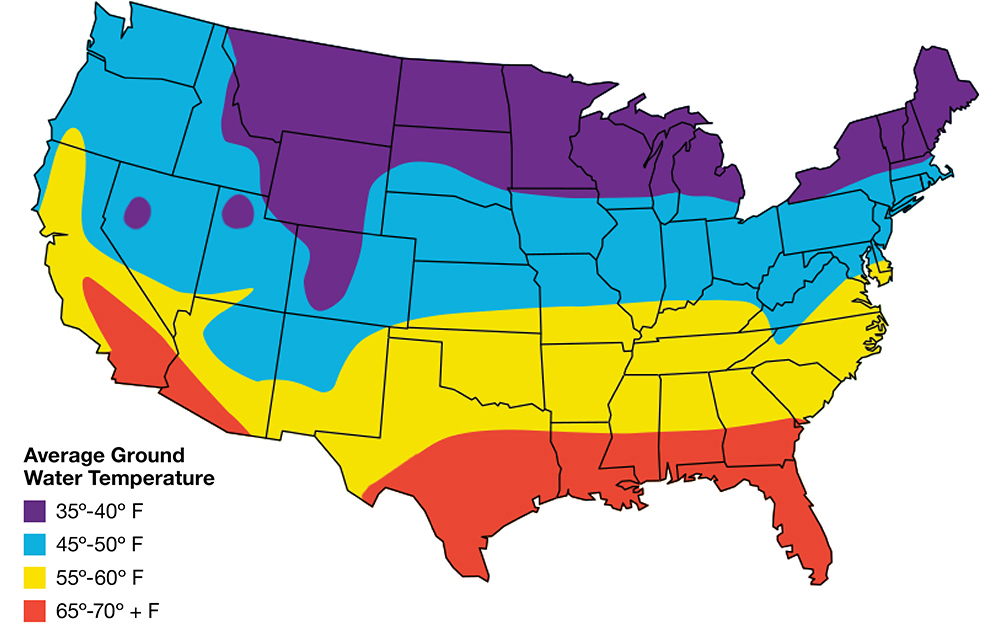Inspiration Guide
Best Tankless Water Heaters for Your Home
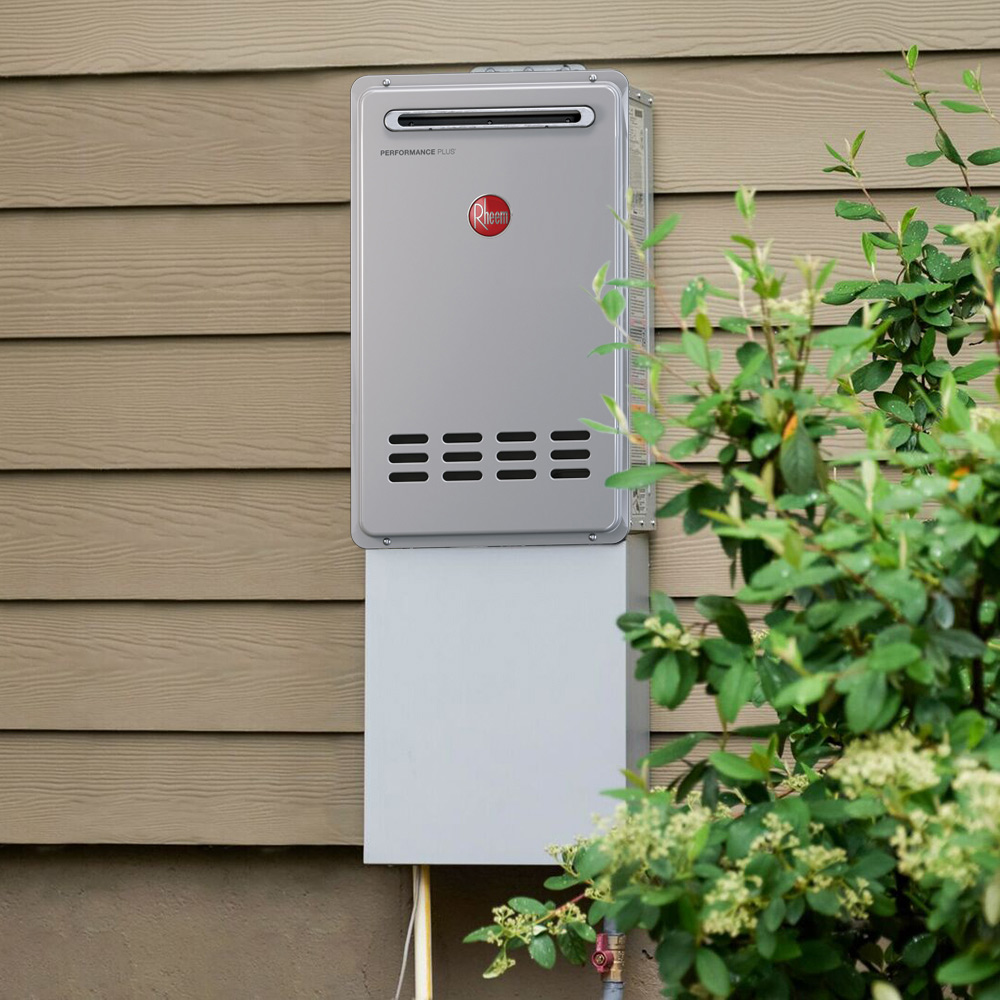
In recent years, tankless water heaters have become a popular alternative to traditional models. Also called on-demand or spontaneous water heaters, tankless designs heat water only when needed, which can reduce energy consumption and take up less storage space than water heaters with large tanks.
This guide explores how to choose between the different types to find the best tankless water heater for your home.
How to Choose a Tankless Water Heater
The most important factor in choosing a tankless water heater is determining your home’s home water usage and picking a unit to match.
- First, estimate the hot water needed for your home by calculating the gallons per minute (gpm) needed for appliances that will run at same time (for example, a shower is typically 1 to 2 gallons per minute, a dishwasher 1 to 2.5 gpm, etc.).
- Factor in the temperature of the ground water in the area to estimate how much the water will need to be heated. (For example, the southernmost parts of the United States have an average ground water temperature of 65 to 70 degrees Fahrenheit, while the most northern states often see an average of 40 degrees or less.) If you live in an area with 55 degree groundwater, you’ll want a unit with a minimum temperature rise of 45 degrees to get 100 degree water.
- Find a unit that provides the needed combination of gpm and minimum temperature rise.
There’s also a simpler rule of thumb.
- If your home has one bathroom and 1 or 2 residents, consider a water heater of 140,000 BTUs (British thermal units, the standard unit of measuring heat).
- If your home has two bathrooms and 2 or 3 residents, consider a water heater of 190,000 BTUs.
- If your home has three bathrooms and 3 to 5 residents, consider a water heater of 380,000 BTUs.
Non-Condensing vs. Condensing Tankless Water Heaters
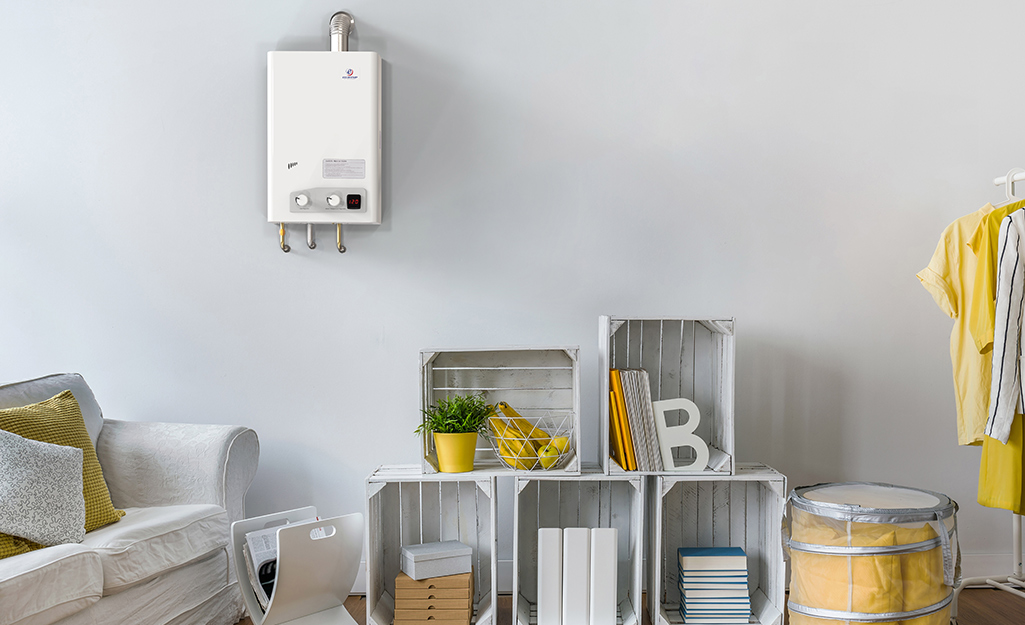
The two primary types of tankless water heaters are non-condensing and condensing.
- Non-condensing tankless water heaters originated first and use heat exchangers to create hot water and vent the exhaust outdoors. They require stainless steel flue pipes to withstand the heat of the exhaust, which can be more expensive than condensing heaters. They also tend to have lower installation costs and, with simpler technology, have fewer opportunities to malfunction.
- Condensing tankless water heaters, developed more recently, use the high-temperature exhaust as an additional means of heating the water. They tend to be more heat-efficient than other water heaters and can use less expensive PVC in the venting pipes, but be more expensive overall.
Tankless Gas Water Heaters
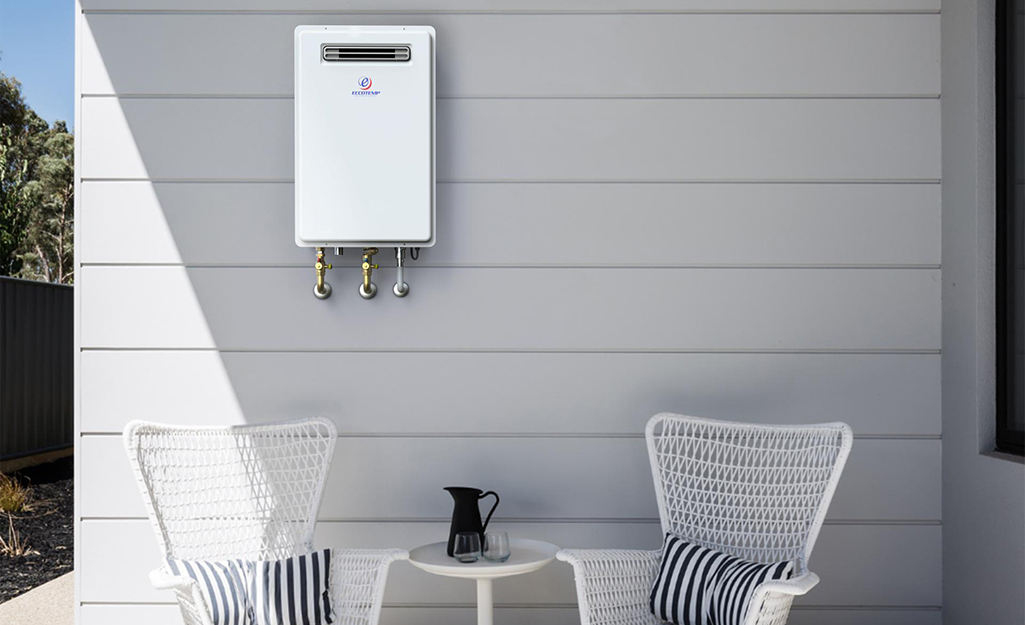
Tankless water heaters use two types of fuel. Tankless gas water heaters use a gas burner to heat the water and generally have longer life spans than traditional or electric water heaters. They can produce a larger temperature rise per gpm than electric models.
Tankless Electric Water Heaters
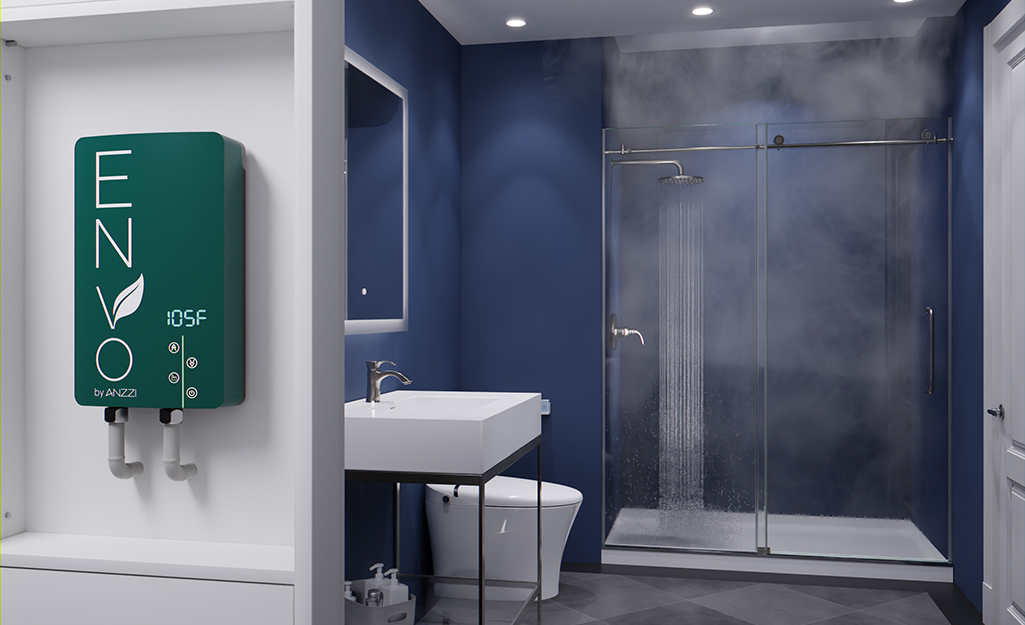
Tankless electric water heaters use an electric element to heat the water and tend to have a lifespan comparable to traditional water heaters. Also, electric models may require an upgrade of the home’s electrical system, a cost not found with gas water heaters.
Point-of-Use Tankless Water Heaters
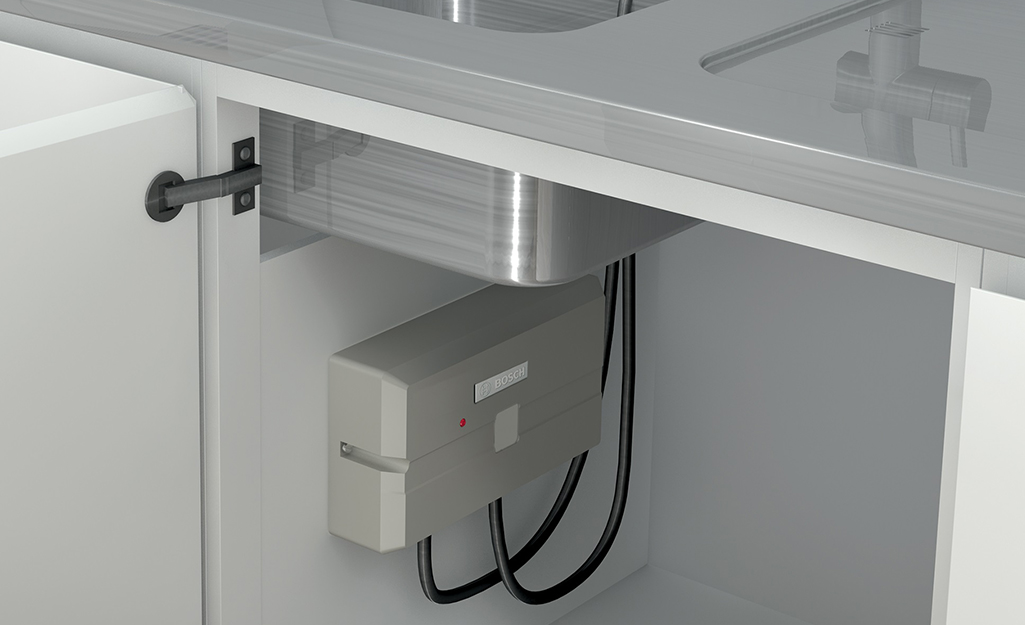
Point of use tankless water heaters provide an alternative or supplement to models designed to supply a whole house. Relatively small, they can often fit inside a closet or cabinet and tend to be dedicated-use devices, heating water for a single shower, washing machine, etc. They can be significantly less expensive than water heaters designed to heat a whole house and may be more efficient as a supplement to a traditional water heater than as a replacement for one.
Special Features
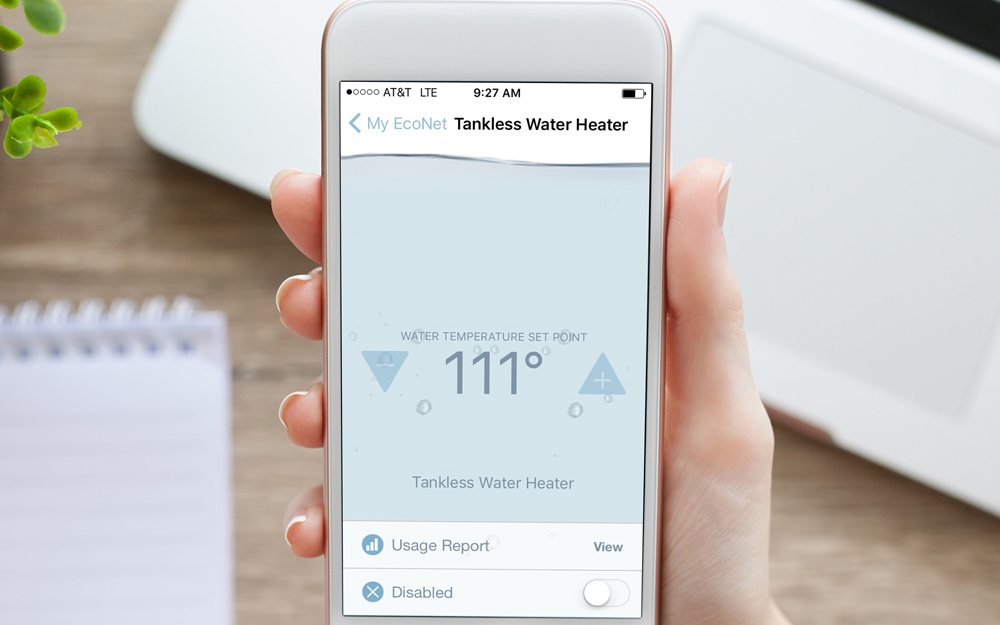
Not every type of tankless water heater includes these special features:
- Built-in recirculation pumps prove useful when the heater is more than 50 feet from the appliance and can recirculate cold water. They can be set by timer, push button and motion sensor.
- Wireless connectivity a can allow recirculation pumps to be set by smart phone or smart speaker, as well as notify you when the unit needs maintenance.
The best tankless water heaters for your home may be more expensive than traditional water heaters, but tankless water heater installation offers energy efficiency that can save you money in the long run.
Shop tankless water heaters at The Home Depot.

